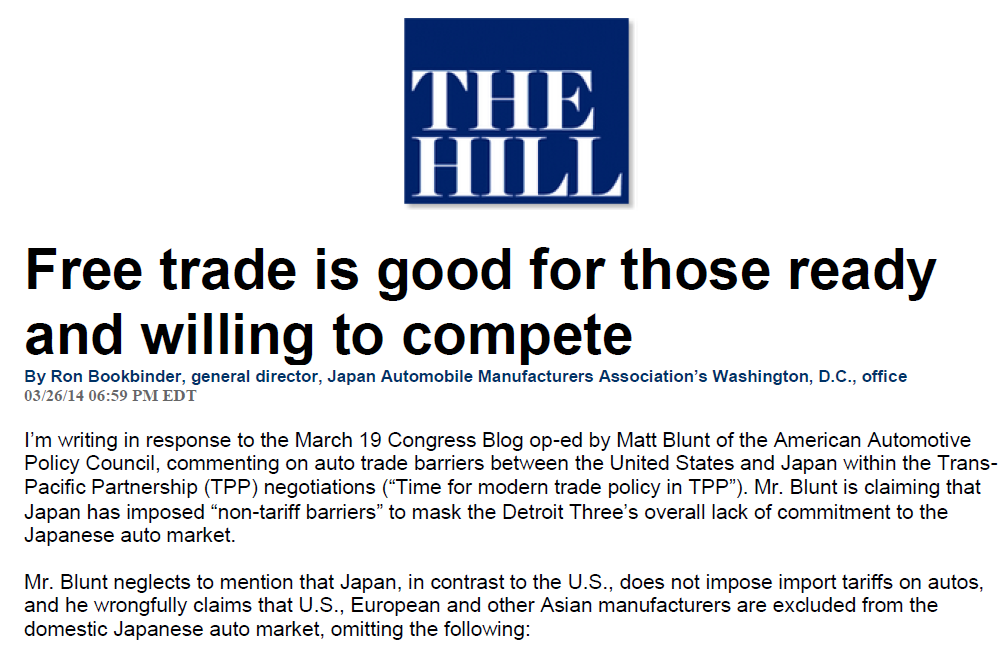By Ron Bookbinder
March 26, 2014
I’m writing in response to the March 19 Congress Blog op-ed by Matt Blunt of the American Automotive Policy Council, commenting on auto trade barriers between the United States and Japan within the Trans-Pacific Partnership (TPP) negotiations (“Time for modern trade policy in TPP”). Mr. Blunt is claiming that Japan has imposed “non-tariff barriers” to mask the Detroit Three’s overall lack of commitment to the Japanese auto market.
Mr. Blunt neglects to mention that Japan, in contrast to the U.S., does not impose import tariffs on autos, and he wrongfully claims that U.S., European and other Asian manufacturers are excluded from the domestic Japanese auto market, omitting the following:
That the Detroit Three currently only offer nine models for 90 percent of the domestic Japanese auto market (i.e., small cars and mini cars), compared to 91 models offered by European manufacturers;
That between 1996 and 2013, there was a 74 percent decline in Detroit Three auto dealerships in Japan, in stark contrast to a 72 percent increase of dealerships for European automakers in the same period;
And that during a five-year period ending in July 2013, the four leading European automakers in Japan outspent the Detroit Three on advertising in Japan by a ratio of 14-1.
Clearly, Mr. Blunt and the AAPC are erroneously publicizing their claims regarding TPP as market access issues, rather than as marketing and investment issues.
I agree with Mr. Blunt that TPP has to be a “win-win” for all countries involved. If the TPP agreement is successfully concluded, the economic benefits for all 12 negotiating countries will be significant. However, Mr. Blunt conveniently omits that participation in the TPP would force the ultimate elimination of trade protections for the Detroit Three via the United States’s 2.5 percent import tariff on cars and 25 percent import tariff on light trucks.
For all participants in the Trans-Pacific Partnership negotiations, there is an unprecedented opportunity to engage in free and fair trade — for those who are willing and ready to compete.
Washington, D.C.
Original Source: The Hill
Click to view PDF


